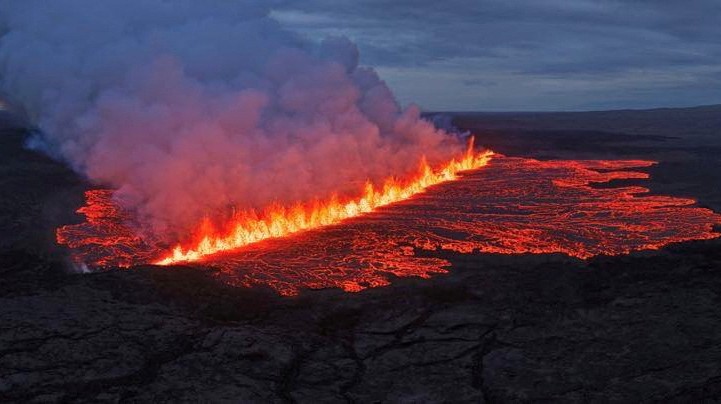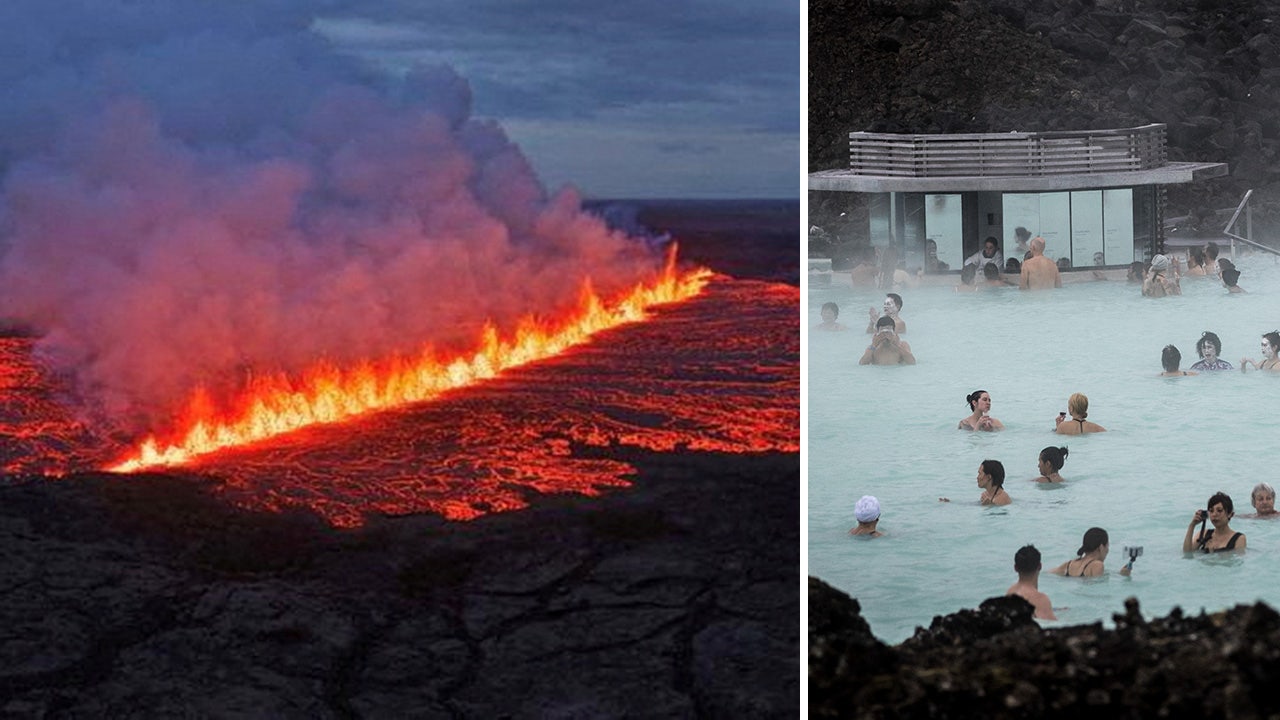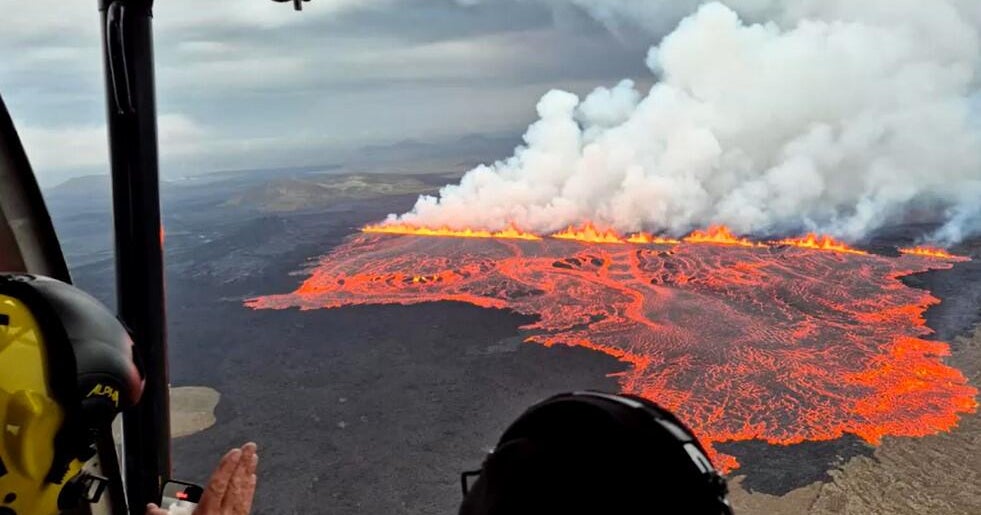Volcanic Eruption Forces Evacuations at Iceland's Blue Lagoon Spa
A volcanic eruption on Iceland's Reykjanes Peninsula has led to the evacuation of tourists from the Blue Lagoon geothermal spa and nearby Grindavik town.
Subscribe to unlock this story
We really don't like cutting you off, but you've reached your monthly limit. At just $5/month, subscriptions are how we keep this project going. Start your free 7-day trial today!
Get StartedHave an account? Sign in
Overview
- A volcanic eruption occurred on the Reykjanes Peninsula in Iceland, prompting evacuations of tourists from the Blue Lagoon geothermal spa.
- The eruption was preceded by an intense seismic swarm, indicating increased volcanic activity in the region.
- Lava flows from the eruption are reported to be between 2,296 and 3,300 feet wide, affecting nearby areas.
- Grindavik has experienced ongoing volcanic activity since November 2023, leading to repeated evacuations of tourists.
- Iceland is one of the most active volcanic regions globally, with 12 eruptions since 2021, highlighting its geological volatility.
Report issue

Read both sides in 5 minutes each day
Analysis
The reporting appears neutral and objective by consistently presenting factual information about the volcanic eruption and its impacts. Sources attribute all key details to official bodies like Iceland's Met Office and RUV, avoiding speculative or emotionally charged language. The article provides relevant historical and geological context without editorializing, maintaining a balanced and informative tone throughout.
Articles (3)
Center (1)
FAQ
A volcanic eruption on Iceland's Reykjanes Peninsula, preceded by an intense seismic swarm, led to the evacuation of tourists from the Blue Lagoon geothermal spa due to safety concerns and potential gas pollution.
The lava flow from the volcano eruption on the Reykjanes Peninsula is reported to be between 2,296 and 3,280 feet wide.
The Blue Lagoon has specialized protective barriers constructed at Svartsengi to safeguard its infrastructure from potential lava flows, an extended network of gas sensors to monitor air quality, and a weather station to track conditions that affect safety. Evacuation plans are prepared, and trained staff can implement precautionary measures if required.
Yes, Grindavik has experienced ongoing volcanic activity since November 2023, including repeated evacuations of tourists due to eruptions after volcanic dormancy of about 800 years.
No, air traffic to and from Iceland remains unaffected, and the volcanic activity is highly localized with no impact on infrastructure or attractions across the rest of Iceland. The country remains open and safe for tourists.
History
- This story does not have any previous versions.


